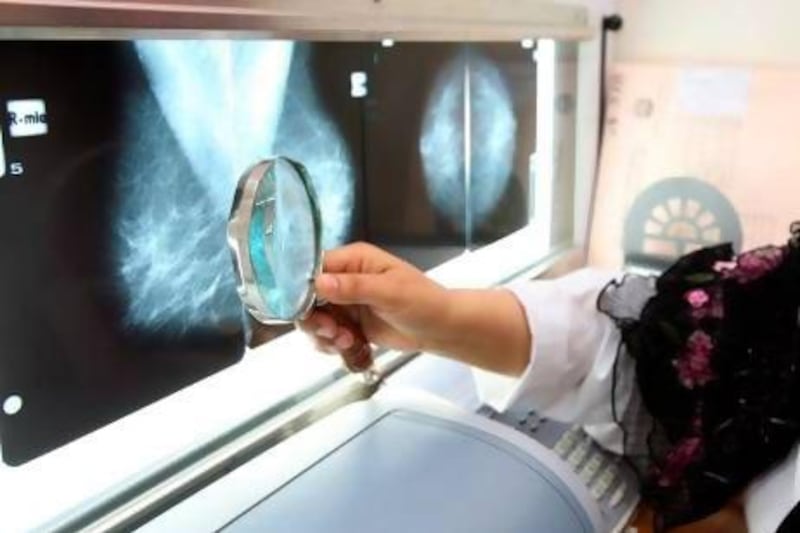ABU DHABI // An awareness programme highlighting three forms of cancer in one initiative for the first time has saved lives.
That is the view of Dr Lamia Safieldeen, senior officer in cancer control and prevention at the Health Authority Abu Dhabi, who spoke on the sidelines of a ceremony celebrating the achievements of the six-month “cancer wave” scheme.
Running from October last year until the end of March this year, the drive tackled colorectal, cervical and breast cancer.
Fifty cases of breast cancer were detected in October and November, when this form of the disease was highlighted, it was announced at the ceremony, held in the capital on Tuesday.
The number of mammograms increased by 11 per cent last year compared with 2011, from 14,227 to 15,749.
The uptake of the HPV vaccination, which fights the cervical cancer-causing human papillomavirus, jumped by six per cent in public schools from 2011/12 to 2012/13 – from an average of 84 per cent to 90 per cent receiving the first and second of three doses.
Dr Safieldeen said the campaign, under the slogan “Live Healthy and Simply Check”, played a part in driving these figures up.
“The whole idea is we wanted to join the two other cancers to breast cancer and make a wave,” she said. “We want to take the high awareness of breast cancer and use it to raise the awareness of the other two and make it one battle instead of three.”
The latest figures show an improvement in detecting breast cancer earlier in the emirate. In 2007, 64 per cent of breast cancer cases were detected at a late stage but by 2011 this dropped to 25 per cent.
“For breast cancer, you can detect it early. For colorectal and cervical, you can detect the cells before it turns to cancer,” Dr Safieldeen said. “Awareness is key and if you push people to do the screening, that’s going to be very successful to reduce the number of people having the cases. For cervical cancer, it’s not only detecting the cancerous cells, it’s having the HPV vaccine.”
The campaign included public seminars, a fashion show, a walkathon and free or discounted cancer-screening.
Cancers account for 15 per cent of deaths in the emirate.
Dr Khaled Al Jaberi, manager of non-communicable diseases at the public health and research division of the health authority, said the three cancers were targeted because they were among the leading causes of death.
“Instead of only celebrating specific days for every sort of cancer and focusing on a one-day event or a one-week event, we thought of having it as a continuous six-month programme,” he said. “We want to continue doing it every year. We start again in October.”
Dr Al Jaberi said they planned to add lung cancer to the wave in October.
ecleland@thenational.ae





